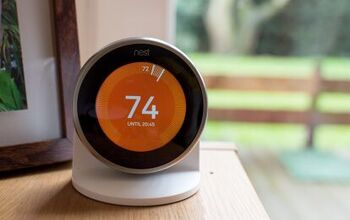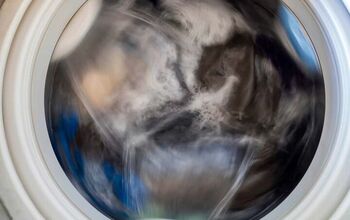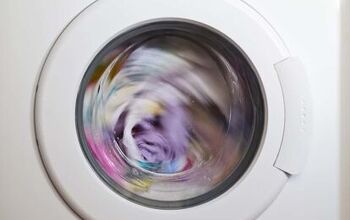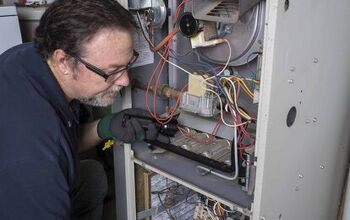How Much Is A Water Heater Worth In Scrap Metal?

There is no reason to simply recycle an old water heater when you could get a little bit of money out of it. Water heaters contain metals such as copper, brass, and aluminum that are often valuable. So, how much is a water heater worth in scrap metal?
A water heater is worth an average of $18 in scrap metal if you dismantle it. Water heaters that feature more brass and copper are particularly valuable, especially if either metal is in demand. Scrapyards may offer you up to $30 for a water heater depending on the time of year, the size, and the weight of the metals.
Cost factors such as the time of year and trends in scrap metal ultimately determine the value of a water heater. Dismantle the water heater before you bring it in to get the most money from the scrapyard. Follow along as we explore how much a water heater is worth in scrap metal.
How Much Is A Water Heater Worth In Scrap Metal?
A water heater is worth an average of $18 in scrap metal when you bring it to a scrapyard. It varies based on the scrapyard, the size, and the weight of the water heater. They may offer you as little as $7 if you don’t properly dismantle it before you bring it in.
Larger water heaters with valuable materials such as copper are worth up to $30 in scrap metal. Scrapyards are more likely to give you a great deal if you dismantle the water heater. However, there is no way to know how much a scrapyard will give you for your water heater until you bring it in.
Water heaters with more brass, copper, and aluminum are worth more money. The value of scrapped materials varies based on the demand and even the time of year. You can call your local scrapyard ahead of time to get an estimate before you dismantle and bring in your water heater.
Scrap Metal Cost Factors
The value of scrap metal from a water heater depends on several cost factors, such as weight and materials. Even the time of year plays a role in how much money a scrapyard will give you for an old water heater. Certain metals are more abundant during different times of the year depending on production, resale, and demand.
Like any other resource, supply and demand is a huge cost factor for scrap metal. Certain metals present in water heaters, such as aluminum are widely abundant and therefore aren’t typically valuable. Pricier materials that you can find in a water heater, like copper are generally valuable but only when it is in high demand.
The biggest cost factor that determines how much a water heater is worth in scrap metal is the materials. Water heaters generally feature metals such as aluminum, copper, and brass.
Brass
Brass is valuable and worth up to $1.50 per pound at many scrapyards. Scrapyards seek out pure brass in particular, and you can find it in several water heater parts:
- Drain valves
- Fittings
- Protective caps
- Burner assemblies (gas water heaters)
- Regulator (gas water heaters)
- Knobs
Aluminum
Aluminum isn’t as valuable as brass, but it is worth up to $1 per pound at many scrapyards. The value of aluminum depends on the weight and whether it is an alloy or pure aluminum. You can find aluminum in several components of a water heater, such as:
- Anode rods
- Drain pans
- Pipes
- Valves and valve bodies.
No two scrapyards are alike, and they may offer as little as $0.10 per pound of aluminum. However, the total of aluminum in your water heater adds to the value, especially alongside brass and copper.
Copper
Copper is the most valuable metal that you can find in a water heater. Scrapyards will pay up to $2 per pound for copper in many cases, especially if it is not an alloy. Copper alloys are still valuable but are worth slightly less because they aren’t pure copper.
Water heaters often feature copper in several key parts, like the:
- Pipes, tubes, and fittings
- Heating elements (electric water heaters)
- Mineral deposit sticks
How to Scrap a Water Heater
Before you can scrap a water heater, it must be cleaned. This is especially true if you plan on removing only certain components to scrap them separately at higher rates. Follow these steps to clean and prepare your water heater for scrapping:
- Drain the water. Since scrap yards pay by the weight, some will require you to puncture the tank to prove that the water has been drained out. We’ll cover the draining process in further detail below.
- Separate the parts you want to scrap individually. This only requires basic tools, like a hammer and pipe wrench. Remove and sort any parts that are made of more valuable materials, such as copper.
- Check the laws in your state. Some states may have specific requirements, like proof of ownership, identification from the seller, or intact serial numbers. It’s important to be aware of these things before you head to the scrap yard. You can find out this info by consulting the scrap yard or research your state’s scrap laws online.
Keep in mind that the requirements for water heaters will vary from scrap yard to scrap yard. So, be sure to inquire about any unique requirements before visiting.
How Do I Drain a Hot Water Heater?
To start preparing your hot water heater for the scrapyard, you will need to drain the hot water tank. This process is a very easy process that can be completed in just a few steps. To drain the water from your hot water heater, you must:
Step 1: Turn Off Water
First, you will want to turn off the cold water supply to the hot water heater, usually located on the top of the unit. Next, turn off the power to the hot water heater. If you have an electric hot water heater, this may be as simple as switching the circuit breaker. For a gas water heater, you may need to shut off the gas supply to the hot water heater.
Step 2: Attach Hose
Located near the bottom of your hot water heater, you will see a drain valve. Attach a simple garden hose to this valve. The other end of the hose can go to a floor drain, nearby sink, or a simple bucket to catch the drained water.
Step 3: Open Hot Water Tap
To speed up the process, open the hot water tap on nearby sinks. This step will help to drain the hot water tank quickly by pulling water from the system.
Step 4: Open the Drain Valve
Next, simply open the drain valve to remove the hot water from the tank. Sometimes a screwdriver is needed to release the valve, allowing the water to come out. Use caution opening the drain valve. This step can produce hot water, and burns are possible.
Step 5: Disconnect
Once the hot water heater is fully drained, it is safe to remove the hose and disconnect the unit from the main water lines. To fully dismantle a hot water heater, you will most likely need to move the water heater to a different location. Be very careful disconnecting and moving the hot water heater. Although the hot water heater may be empty, the unit can still weigh as much as 150 pounds.
Do I Need to Break Down a Hot Water Heater for Scrap?
Because much of the price you will receive from a scrapyard when recycling metal depends on the effort to return ratio, breaking down the hot water heater yourself will often net you the largest amount of return. If you are willing to do a little hard work yourself before taking your hot water heater to the scrapyard, you will see marginally larger returns for your broken appliance.
To break down a hot water heater into useable scrap metal for the scrapyard, you will first remove the top pipe connections to the heater. These are often made of a different material but can also be sold for scrap. Remove the gas regulator from the unit, which can be completed by hitting it with a heavy sledgehammer to dislodge it from the water heater.
Depending on the type of regulator used, this may also be sold as scrap. Lastly, you can usually sell the larger cylindrical tank for additional money at the scrapyard.
Is Scrap Metal a Green Practice?
Selling your water heater for scrap metal is a great way to recycle and reuse the metal material that makes up your hot water heater. This practice is a great way to keep usable materials out of the junkyard and allow manufacturers to reuse the material in useful applications.
When you take your hot water heater to the scrapyard, the metal is sorted, cleaned, and melted with other similar materials. The melted metal is then transformed into ingots, which are sold to manufacturing plants to recycle into new products.
Related Questions
What are the most common problems with a hot water heater?
When your hot water heater fails to operate, it can quickly derail an entire household. There are two main culprits for a broken hot water heater. First, the heating elements are likely to fail. This failure usually creates only lukewarm water, despite having the temperature turned entirely up. Or, failing heating elements may produce intermittent hot water that does not stay hot consistently.Secondly, a leaking hot water heater is a very common problem. Although this appliance is built to last for years and is generally made from durable materials, rust is a real possibility. Leaks are easily detected by a higher than usual water bill or visible pooling water in the area surrounding your hot water heater.Unfortunately, both a damaged heating element and a leaking water heater are two very costly repairs. In both cases, it is best to replace your hot water heater with a new unit.
How much will a new hot water heater cost?
Compared to other mechanical systems in your home, a hot water heater is one of the cheaper units to replace. The overall price of your hot water heater will largely depend on the style of the heater, as well as the size of the heater. Larger heaters will cost more and provide a larger amount of hot water to your home. Usually, a hot water heater will cost about $1,000 to purchase and an additional $300 to install.If you are interested in installing a solar hot water heater or a tankless hot water heater, you can expect to pay more for the unit and installation. These hot water styles are more costly and can help save energy and work as a more efficient system in your home.Expect to pay around $2,000 for a tankless water heater and around $5,000 for a solar water heater. Although more expensive upfront, many homeowners will recoup the initial cost of the heater through monthly utility bill savings.
Related Guide

We are a team of passionate homeowners, home improvement pros, and DIY enthusiasts who enjoy sharing home improvement, housekeeping, decorating, and more with other homeowners! Whether you're looking for a step-by-step guide on fixing an appliance or the cost of installing a fence, we've here to help.
More by Upgraded Home Team



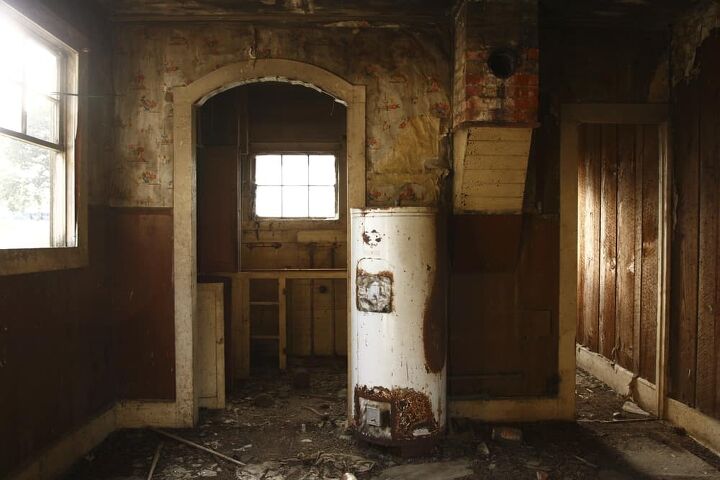
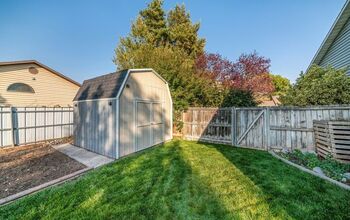







![10 Best Electric Lawn Mowers - [2022 Reviews & Top Rated Models]](https://cdn-fastly.upgradedhome.com/media/2023/07/31/9070486/10-best-electric-lawn-mowers-2022-reviews-top-rated-models.jpg?size=350x220)




